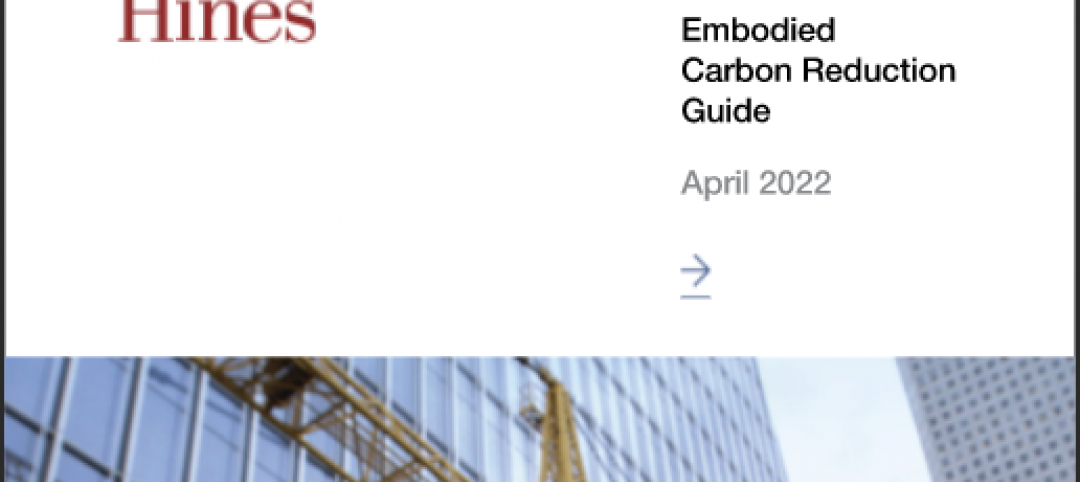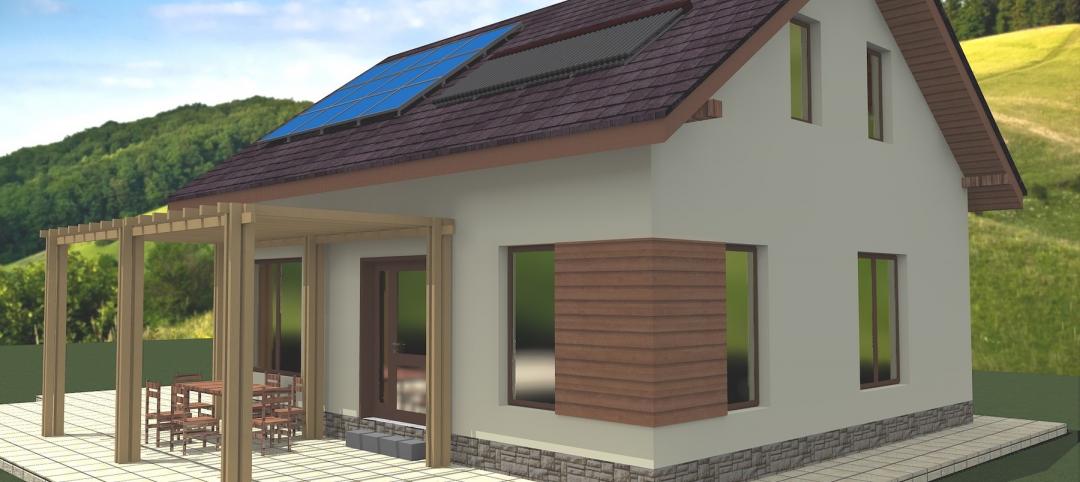The U.S. Dept. of Energy (DOE) released a Request for Information (RFI) to help decide how best to spend $500 million from the recently passed federal infrastructure law for K-12 public school energy upgrades.
The law makes available grants for energy improvements that result in a direct reduction in school energy costs, including improvements to the air conditioning and heating, ventilation, hot water heating, and lighting systems. Funding would also support renovation and repairs that lead to an improvement in teacher and student health.
Many schools are in desperate need of energy improvements, according to a DOE news release. The American Society of Civil Engineers gave the nation’s 100,000 public K-12 schools a D+ in their 2021 Report Card for America’s Infrastructure report.
“Dilapidated school facilities can negatively affect student learning and health as indoor air quality problems can aggravate respiratory illnesses, reduce student and teacher attendance and performance, and increase risk of transmission of respiratory infections like COVID-19,” the release says.
DOE encourages local education agencies, school staff, states, local governments, energy service companies, unions, service providers, and utilities to respond to the RFI. The deadline for submissions is May 18, 2022.
Related Stories
Legislation | May 4, 2022
Washington is first state to mandate all-electric heat for new large buildings
Washington recently became the first state to require all electric heat for new buildings.
Codes and Standards | May 3, 2022
American Institute of Steel Construction updates environmental product declarations
The American Institute of Steel Construction has released updated environmental product declarations (EPDs) “to help designers and building owners design more environmentally friendly buildings and bridges,” according to an AISC news release.
Codes and Standards | May 2, 2022
Developer Hines, engineer MKA develop free embodied carbon reduction guide
Real estate management and investment firm Hines has released the Hines Embodied Carbon Reduction Guide. The free guide, produced with Magnusson Klemencic Associates (MKA), is the result of a two-year effort, relying on MKA’s industry-leading knowledge of carbon accounting and involvement in programs such as the Embodied Carbon in Construction Calculator (EC3) Tool.
Codes and Standards | Apr 28, 2022
Architecture firm Perkins&Will to deliver ‘carbon forecasts’ for clients
Global architecture firm Perkins&Will says it will issue its clients a “carbon forecast” for their projects.
Codes and Standards | Apr 27, 2022
White House guidance on Buy American for infrastructure includes waiver process
Recently released guidance on the Buy American provision within the $1.2 trillion Infrastructure Investment and Jobs Act released by the Office of Management and Budget includes a waiver process.
Multifamily Housing | Apr 26, 2022
Investment firm Blackstone makes $13 billion acquisition in student-housing sector
Blackstone Inc., a New York-based investment firm, has agreed to buy student-housing owner American Campus Communities Inc.
Codes and Standards | Apr 25, 2022
Supply chain constraints, shifting consumer demands adding cost pressures to office fit-outs
Cushman & Wakefield’s 2022 Americas Office Fit-Out Cost Guide found supply chain constraints and shifting consumer demands will continue to add pressure to costs, both in materials and labor.
Legislation | Apr 21, 2022
NIMBYism in the Sunbelt stymies new apartment development
Population growth in Sunbelt metro areas is driving demand for new apartment development, but resistance is growing against these projects.
Codes and Standards | Apr 18, 2022
Dept. of Energy has RFI on funding cost-effective updated energy codes implementation
The U.S. Department of Energy (DOE) Building Technologies Office (BTO) has issued a request for information regarding funding cost-effective implementation of updated building energy codes.
Legislation | Apr 14, 2022
Defense Dept. building largest 3D-printed structures in Western Hemisphere
The U.S. Department of Defense is constructing three barracks at the Camp Swift Training Center in Bastrop, Texas that will each be the largest 3D-printed structures in the Americas.

















